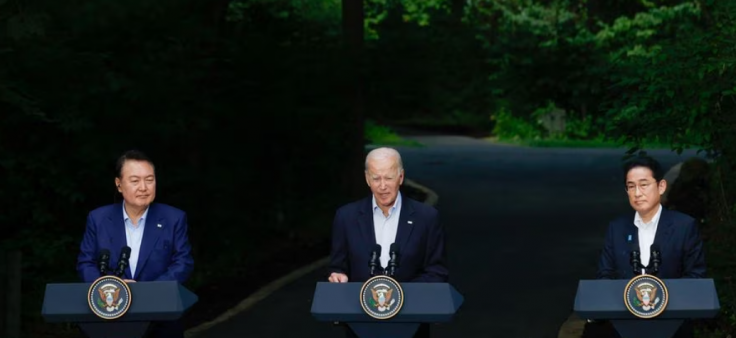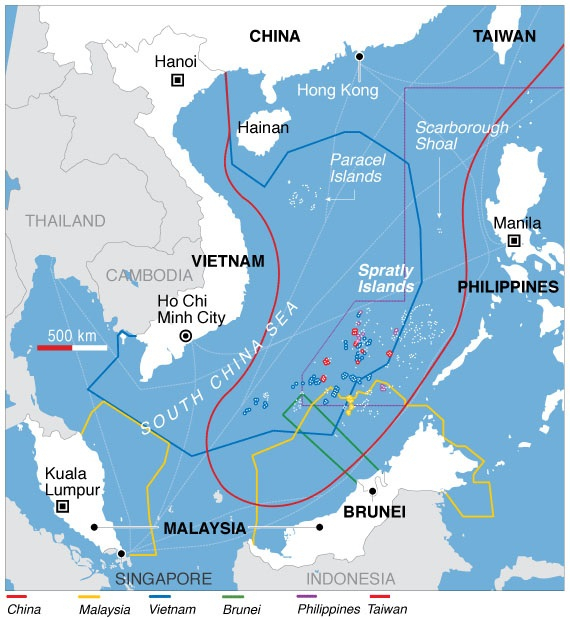The United States, Japan and South Korea lashed out at China, saying Beijing was engaged in dangerous and aggressive behaviour in the South China Sea and agreed to boost military and economic cooperation among the allies.
"Regarding the dangerous and aggressive behavior supporting unlawful maritime claims that we have recently witnessed by the People's Republic of China (PRC) in the South China Sea, we strongly oppose any unilateral attempts to change the status quo in the waters of the Indo-Pacific," the three nations said in a statement after their leaders met at a summit at Camp David on Friday.

South Korean President Yoon Suk Yeol and Japanese Prime Minister Fumio Kishida joined President Joe Biden at the summit, which also analysed the threat from North Korea. The leaders agreed to hold military training exercises annually besides sharing information on North Korean missile launches.
Significance of Summit
"Critically, we've all committed to swiftly consult with each other in response to threats to any one of our countries from whatever source it occurs ... That means we'll have a hotline to share information and coordinate our responses whenever there is a crisis in the region, or affecting any one of our countries ..." President Joe Biden said, according to Reuters. Biden said the three countries will stand up together for international law and against coercion.
The summit assumes significance as it was the first time the top leadership of Japan and South Korea sat down with the US President for a high-level summit. South Korea and Japan share a troubled past as Seoul harbors strong feelings against the Japanese militarism of the past. However, the Camp David summit and the strong statement issued by the countries highlight the realization of a sense of urgency in matters relating to the common foe.

"Unilateral attempts to change the status quo by force in the East and South China Seas are continuing," Kishida said, adding that the North Korean nuclear and missile threat was only becoming ever larger.
Trilateral Framework
South Korea's Yoon said that any provocations or attacks against any one of our three countries will trigger a decision making process of this trilateral framework. He said the solidarity between Washington, Seoul and Tokyo will become 'even stronger and harder'.
Meanwhile, China lambasted the summit, saying the US and its allies are acting aggressively. "Attempts to cobble together various exclusionary groupings and bring bloc confrontation and military blocs into the Asia-Pacific are not going to get support and will only be met with vigilance and opposition from regional countries," said Liu Pengyu, the spokesperson for China's Washington embassy.









